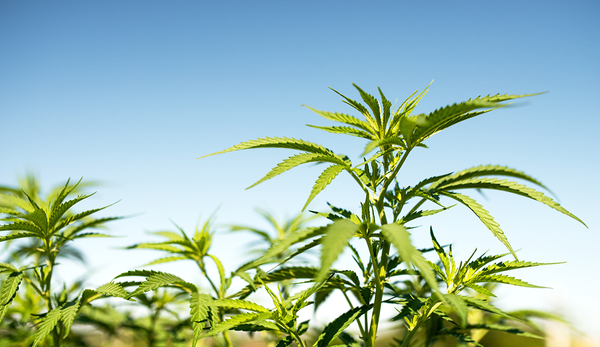What’s The Big Deal With California Bill AB 45?

The hemp industry has scored a big win this week! California Governor Gavin Newsom has signed Assembly Bill 45 into law, expressly legalizing the retail sale of hemp-derived compounds in food, beverage, wellness products, cosmetics, and pet products in the state of California.
The biggest impact of this bill is that it immediately and significantly reduces the risk of local and state enforcement action against California CBD businesses that are compliant with the law’s requirements. Many businesses had faced product seizures over the past several years due to state agency guidance in 2018 that declared CBD products illegal.
Likewise, the passage of AB 45 may also increase the likelihood of a federal bill getting passed to regulate hemp-derived wellness products. California adheres to some of the most stringent consumer safety guidelines in the country. With this major player taking steps to legally regulate hemp products, it may help pave the way for the U.S. Food and Drug Administration (FDA) to follow with similar federal action.
Summary of AB 45
While the bill details many different regulations and limitations for hemp sales in California, there are several key provisions that are important for CBD consumers.
- All non-intoxicating hemp-derived extracts are permitted for use as ingredients in wellness products, food, beverages, cosmetics, and pet products. This includes other non-intoxicating cannabinoids in addition to CBD. However, intoxicating cannabis products are not considered hemp and must be sold through adult-use cannabis channels. Intoxicating products are defined as containing more than 0.3% THC per dry weight, and this applies to any tetrahydrocannabinol including Delta 8, 9, and 10.
- All hemp products must adhere to the same requirements for safety, labeling, and marketing. Hemp must be tested by an independent testing laboratory in raw extract final form before being incorporated into a product. It cannot contain more than 0.3% THC or levels of contaminants that are unsafe for human or animal consumption, as determined by the California Department of Public Health (DPH). Additionally, manufacturers, distributors, and retailers are required to follow current law relative to packaging, labeling, and advertising.
- Smokable hemp products may be sold in California in the future. California farms may now grow hemp to produce inhalable products that will be sold in other states. Californians will soon be able to buy smokable hemp products themselves, once legislation is passed to establish a sales tax.
- There are still some hemp products prohibited for sale in California. This includes non-FDA approved prescription drugs, products containing nicotine or tobacco, alcoholic beverages, and any other product that poses a risk to human or animal health, as determined by regulation.
Next steps for California
The DPH is expected to soon promulgate emergency regulations to implement the bill. When this happens, the agency has the ability to regulate certain aspects of the manufacturing, testing, and labeling process, including the types and levels of contaminants to be tested for in hemp extracts and finished products, serving sizes, cannabinoid concentration per serving, number of servings per bottle, and statements to be included on final product labels.
Consumers may see some changes in the coming months to their hemp products depending on the regulations that the DPH decides to adopt under this new law. However, the biggest impact is that they will now be able to trust the increased regulatory oversight for CBD and other cannabinoids, and take assurance that the products they’re purchasing are properly manufactured, tested, and accurately labeled.
Once the FDA acts to regulate hemp-derived CBD products, the California DPH will then be required to adopt new regulations to comply with the federal standards. Finally, legislation will be introduced in the 2022 legislative session to address open questions such as the tax regime on smokable hemp products.
In the meantime, you can stay current with new hemp legislation by subscribing to our email as well as the U.S. Hemp Roundtable for updates.









